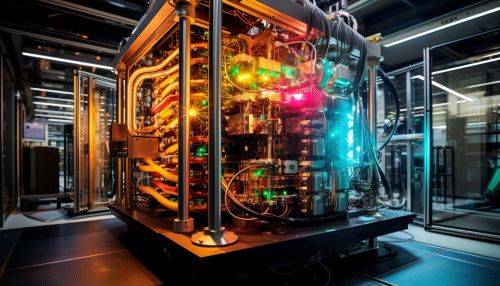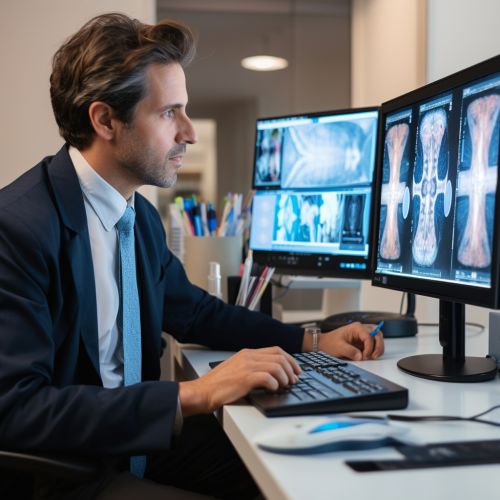The Physics of Quantum Computing in Medicine
Quantum Computing and Medicine
Quantum computing is a field of study focused on the development and application of quantum-based computers. These machines leverage the principles of quantum mechanics to process information at an unprecedented scale and speed. In the realm of medicine, quantum computing has the potential to revolutionize various aspects, from drug discovery to medical imaging, and personalized medicine.
Quantum Computing Principles
Quantum computing operates on the principles of superposition and entanglement. Superposition allows quantum bits, or qubits, to exist in multiple states simultaneously, unlike classical bits that can only be in one state at a time (either 0 or 1). Entanglement, on the other hand, creates a unique bond between qubits such that the state of one qubit can instantaneously affect the state of another, regardless of the distance separating them. This combination of superposition and entanglement enables quantum computers to perform complex calculations and simulations much more efficiently than classical computers.


Quantum Computing in Drug Discovery
One of the most promising applications of quantum computing in medicine is in the field of drug discovery. The process of discovering and developing new drugs is a complex and time-consuming task, often taking years and billions of dollars. Quantum computers, with their superior processing power, can significantly expedite this process by simulating the interactions between molecules and drugs at a quantum level. This can lead to the identification of potential drug candidates more quickly and accurately, potentially saving time, resources, and lives.
Quantum Computing in Medical Imaging
Quantum computing also holds promise in the field of medical imaging. Traditional imaging techniques, such as MRI and CT scans, generate vast amounts of data that require extensive processing and analysis. Quantum computers, with their ability to process and analyze large datasets efficiently, can help improve the speed and accuracy of image analysis. Moreover, quantum algorithms can potentially enhance the quality of images, enabling doctors to detect diseases at earlier stages and with greater precision.


Quantum Computing in Personalized Medicine
Personalized medicine is another area where quantum computing can make a significant impact. Personalized medicine involves tailoring medical treatment to the individual characteristics of each patient. This requires the analysis of vast amounts of genetic and clinical data, a task well-suited for quantum computers. By processing and analyzing this data more efficiently, quantum computers can help doctors develop personalized treatment plans faster and more accurately.
Challenges and Future Directions
Despite its potential, the application of quantum computing in medicine also faces several challenges. These include the current lack of fully functional quantum computers, the need for specialized knowledge to operate and maintain these machines, and concerns about data privacy and security. However, ongoing research and development in the field of quantum computing are expected to address these challenges in the future.


